 ,
,  ,
,  ,
,  ,
,  ,
,  ,
,  ,
,  ,
,  ,
,  ,
,  ,
,  ,
,  ,
,  ,
,  ,
,  ,
,  ,
,  ,
,  ,
,  ,
,  ,
,  ,
,  ,
,  ,
,  ,
,  ,
,  ,
,  ,
,  ,
,  ,
,  ,
,  ,
,  ,
,  ,
,  ,
,  ,
,  ,
,  ,
,  ,
,  ,
,  ,
,  ,
,  ,
,  ,
,  ,
,  ,
,  ,
,  ,
,  ,
,  ,
,  ,
,  ,
,  ,
,  ,
,  ,
,  ,
,  ,
,  ,
,  ,
,  ,
,  ,
,  ,
,  ,
,  ,
,  ,
,  ,
,  ,
,  ,
,  ,
,  ,
,  ,
,  ,
,  ,
,  ,
,  ,
,  ,
,  ,
,  ,
,  ,
,  ,
,  ,
,  ,
,  ,
,  ,
,  ,
,  ,
,  ,
,  ,
,  ,
,  ,
,  ,
,  ,
,  ,
,  ,
,  ,
,  ,
,  ,
,  ,
,  ,
,  ,
,  ,
,  ,
,  ,
,  ,
,  ,
,  ,
,  ,
,  ,
,  ,
,  ,
,  ,
,  ,
,  ,
,  ,
,  ,
,  ,
,  ,
,  ,
,  ,
,  ,
,  ,
,  ,
,  ,
,  ,
,  ,
,  ,
,  ,
,  ,
,  ,
,  ,
,  ,
,  ,
,  ,
,  ,
,  ,
,  ,
,  ,
,  ,
,  ,
,  ,
,  ,
,  ,
,  ,
,  ,
,  ,
,  ,
,  ,
,  ,
,  ,
,  ,
,  ,
,  ,
,  ,
,  ,
,  ,
,  ,
,  ,
,  ,
,  ,
,  ,
,  ,
, 
ADDRESSING THE CRISIS IN RELATIONS BETWEEN THE COUNCIL OF EUROPE AND RUSSIA: UPHOLD THE VALUES AND FULFIL THE MISSION TO PROTECT RIGHTS ACROSS ALL OF EUROPE
ADDRESSING THE CRISIS IN RELATIONS BETWEEN THE COUNCIL OF EUROPE AND RUSSIA:
UPHOLD THE VALUES AND FULFIL THE MISSION TO PROTECT RIGHTS ACROSS ALL OF EUROPE
Memorandum by Russian human rights defenders
November 2018
This memorandum is driven by our deep worry about the current state of relations between Russia and the Council of Europe (CoE). There have been very tense moments in these relations throughout the 20 years of Russia’s membership in the organisation, but the current state of affairs constitutes a full-fledged crisis. At the moment, it appears to have reached a point at which the threat of Russia leaving the CoE (either at its own initiative or as a result of expulsion) seems to be very real.
There is a lot at stake now. The potential costs of this withdrawal appear to be too high and far-reaching – not only for the Russian society, but for the whole of Europe. Any actions to address the crisis should aim at preventing this unfortunate development, and should be guided by evidence-based analysis and strategic approach, rather than immediate emotional reactions and momentary political considerations.
As human rights defenders and civil society experts, we deal with major human rights problems in our country on a daily basis. Our position is based on our strong desire for the Council of Europe to remain true to its founding values and principles and preserve its integrity, while continuing to pursue its mission to protect and promote human rights and the rule of law throughout all of Europe, including Russia.
We understand and value the feelings and motives of representatives of the countries that suffered aggression by Russia or live in anticipation of a possible new aggression and side with the critics of Russia’s deplorable record with regard to human rights and the rule of law. By no means we support or justify actions by the Russian authorities in the course of the current crisis that amount to blackmailing (stopping to pay its contributions to the CoE budget, threatening to stop recognising the jurisdiction of the European Court of Human Rights, as well as cooperating with a newly elected Commissioner for Human Rights and a future Secretary General, while at the same time avoiding discussion of real issues behind the crisis).
We are convinced that the situation has reached a deadlock not only due to an uncompromising position of the Russian authorities, but also due to imprudent actions of some stakeholders within the CoE and its member states. We believe that actions in the PACE and beyond aimed at pushing Russia out of the CoE are short-sighted. Driven by righteous anger, they will not lead to what the Kremlin’s critics would like to achieve.
It should be clear to everyone: Russia’s departure from the CoE would not stop human rights violations and halt the authoritarian backslide in our country, or prevent our government’s aggressive behaviour in the international arena. This move would by no means contribute to the resolution of the conflict in Eastern Ukraine and the return of Crimea under Ukrainian jurisdiction. Instead, it would have irreversible consequences, putting an end to a difficult struggle of Russian society to make the country an important part of Europe on the basis of shared norms and values of democracy, rule of law and respect for human rights. Moreover, it will turn a large territory in Europe into a legal “grey zone” for decades to come.
Threats by Russian officials to leave the CoE are not just a bluff to raise the bargaining stakes. There are many influential people in the Russian political establishment in favour of isolationist policies who actually want the country to withdraw. They strive to be free of obligations stemming from the CoE membership and to present the departure from the CoE as a result of an “anti-Russian” plot. Our knowledge of the situation in the country and the dynamics of its political process gives us every reason to believe that if a reasonable compromise is not found before spring 2019, the Russian government will not wait for the “humiliation” at a Ministers’ Deputies meeting in June that will have to discuss the issue of Russia’s expulsion due to non-payment of its financial contributions for two years, and will announce its withdrawal from the CoE. This would most likely happen at the session of the Committee of Ministers in Helsinki in mid-May or before it.
Russia has joined the CoE in mid-1990s under unique historical and political circumstances, and in case it leaves the organisation now, it might not return for decades, even after the current political regime changes. This will leave the largest country on the continent outside of the influence of the European Convention on Human Rights and other important mechanisms for protecting human rights, democracy and the rule of law.
Those who wish to punish the Kremlin miss the target: it is not the Russian government, but the Russian public who would suffer the most. For millions of people residing in Russia (including nationals of other countries), the European Court of Human Rights (ECtHR) has been an ultimate hope for justice, which in many cases they cannot find in Russia. Thousands of its judgments have had a significant positive impact on Russian laws and judicial practice. Should Russia have not been a member of the CoE since 1998, the human rights situation in the country would be much worse. The implementation of ECtHR’s judgments is far from ideal in Russia, but objectively speaking, it is not that much different from the situation in a number of other CoE member states. Despite the creation of a “filter” for the implementation of ECtHR judgments in the national legislation, its actual application was restricted to just a couple of cases. In any case, should Russia depart from the CoE, the scope of human rights problems in the country will grow exponentially (including a horrifying threat of speedy reinstatement of the death penalty).
It is also clear for us that the potential consequences of such departure would go far beyond the deterioration of the internal situation in Russia, as this would de facto lead to dismantling the common European legal framework and challenge the CoE’s unique role and mission. That is why we believe that this issue should be seriously discussed not only in Strasbourg and Moscow, but also in the CoE member states across the continent. A prospect of the CoE losing its members presents the organisation as having no real capacity and weight to influence member states. Instead of expulsion and losing the tools of influence, the CoE should look for new ways of becoming a more influential actor across the entire continent and become more sustainable and robust in the face of likely new crises.
The main interest and goal for all the stakeholders should be to preserve the common European legal framework and space for critical dialogue aimed at promoting human rights, democracy and the rule of law on the entire territory of Europe, not just a part of it. Further escalation of the conflict between Russia and the West should be prevented, and an opportunity for Russia to stay in the European family of nations based on common values should be retained.
We do not advocate for “giving in to blackmailing”. Lifting all restrictions on the Russian delegation in the PACE would be indeed unprincipled. Yet, finding a reasonable compromise solution, in our view, would not be an “appeasement of the aggressor” but a courageous decision to take responsibility and to advance the core values of the organisation, by allowing the critical dialogue to continue. An alternative would be tantamount to giving up the struggle for democracy and justice for Russia and the Russian society, for Crimea, Donbass, Ukrainian prisoners in Russia and many others who are at the hands of Russian authorities.
Amending the PACE rules of procedure in a way that would limit restrictions to those affecting national delegations’ rights only within the Assembly itself and not depriving them of the voting rights in elections of ECtHR judges and other CoE officials (non-PACE mandates) appears to us a legally sound and reasonable solution, based on the values of the organisation and protecting its integrity.
The time for finding a resolution to the conflict is really short. We call on all the stakeholders to assume full responsibility for making the choice that may define Europe’s future and work towards a solution that would both uphold the Council of Europe values and principles and allow it to fulfil its mission to advance and protect democracy, rule of law and human rights across all of Europe, including Russia.
We hope that our analysis, reflections and suggestions would be useful for all the stakeholders involved in discussions and decision-making within the Council of Europe, including parliamentarians and executive authorities of the member states. We are ready to discuss specific suggestions on ways out of the crisis.
Signatures[1]:
- Konstantin Baranov, International Youth Human Rights Movement
- Yuri Dzhibladze, Centre for the Development of Democracy and Human Rights
- Karinna Moskalenko, Centre for International Protection
- Olga Zakharova, Freedom Files
- Natalya Taubina, Public Verdict Foundation
- Galina Arapova, Mass Media Defence Centre
- Elena Shakhova, Citizens’ Watch
- Dmitry Makarov, International Youth Human Rights Movement
- Svetlana Astrakhantseva, Moscow Helsinki Group
- Lev Ponomarev, All-Russian Movement “For Human Rights”
- Valery Borshev, member of the Moscow Helsinki Group
- Boris Altshuler, “Rights of the Child”, member of the Moscow Helsinki Group
- Olga Mikhailova, Centre for International Protection
- Svetlana Kuzevanova, Mass Media Defence Centre
- Olga Voronova, Mass Media Defence Centre
- Nadezhda Radnaeva, Foundation “In Defence of the Rights of Prisoners”
- Tumas Misakyan, Mass Media Defence Centre
- Tatyana Govorukhina, Foundation “In Defence of the Rights of Prisoners”
- Valery Shukhardin, Foundation “In Defence of the Rights of Prisoners”
- Alexander Verkhovsky, SOVA Centre for Information and Analysis
- Ludmila Alexeeva, Moscow Helsinki Group
- Sergei Lukashevsky, The Sakharov Center
- Ivan Pavlov, Team 29
- Anna Sharogradskaya, Institute of Regional Press
- Andrei Suslov, Centre for Civic Education and Human Rights
- Dmitry Dubrovsky, Centre for Independent Sociological Research
- Elena Lukyanova, doctor of law, professor
- Anastasia Samorukova, attorney
- Nikolai Sorokin, Kostroma Centre for Support of Civic Initiatives
- Magomed Mutsolgov, Human Rights Organisation “MAShR”
- Anita Soboleva, lawyer
- Asmik Novikova, Public Verdict Foundation
- Sergei Poduzov, Inter-regional human rights organisation “Man and Law”
- Irina Protasova, Inter-regional human rights organisation “Man and Law”
- Elena Pershakova, Public Verdict Foundation
- Sergei Badamshin, attorney
- Olga Romanova, “Russia behind Bars”
- Alexei Kozlov, “Russia behind Bars”
- Vadim Karastelyov, Network Laboratory of Public Oversight of the All-Russian Civic Congress
- Mikhail Tumasov, Russian LGBT-Network
- Oksana Berezovskaya, Russian LGBT-Network
- Andrei Rudomakha, Environmental Watch of the North Caucasus
- Dmitry Shevchenko, Environmental Watch of the North Caucasus
- Marina Pisklakova-Parker, Centre for Prevention of Violence “Anna”
- Olga Sidorovich, Institute of Law and Public Policy
- Zoya Svetova, journalist, MBKh-Media
- Valentina Cherevatenko, Women of the Don Union
- Irina Biryukova, attorney
- Max Olenichev, partner in the initiative “Lawyers for equal rights”
- Artyom Lapov, attorney
- Ilya Sivoldaev, Human Rights House – Voronezh
- Alexander Peredruk, Soldiers‘ Mothers of Saint Petersburg
- Ernest Mezak, Public Verdict Foundation
- Vadim Prokhorov, attorney
- Maria Samorodkina, attorney
- Anna Stavitskaya, attorney
- Valentina Bokaryova, attorney
- Anton Burkov, attorney
- Ruslan Savolainen, “Coming Out” LGBT Initiative Group
- Marina Dubrovina, attorney
- Yuri Larin, attorney
- Alexander Pikhovkin, attorney
- Sergei Belyaev, NGO “Sutiazhnik”
- Sergei Davidis, Union of Solidarity with Political Prisoners
- Mikhail Gorny, Analytical Centre of Public Policy Development “Community”
- Yaroslav Nikitenko, environmental movement “Living Environment”
- Igor Makarenko, Foundation for Promotion of Political and Civil Freedoms “Civic Accord”
… (signatures are being collected)
ANNEXES
1. Impact of the Council of Europe membership on Russia[2]
Since Russia joined the CoE, the European Court of Human Rights (hereinafter the Court) has delivered around 2500 judgments with regard to Russia where it found at least one violation of the rights and freedoms safeguarded by the European Convention on Human Rights (hereinafter the Convention). According to the official statistics of the Committee of Ministers, around 30% of these judgments are fully executed by now.
The decisions of the Court made it possible for thousands of victims to receive redress at national level as a part of the execution of individual measures. There have been hundreds of unilateral declarations and friendly settlements and more than 14 million EUR paid as just satisfaction to victims in 2017 alone.
Numerous cases were re-examined and resulted in acquittal of human rights victims (e.g. Idalov v Russia). Owing to the decision of the Court, a dissolved political party was able to restore its rights and continued its activities (Republican Party of Russia v Russia).
Furthermore, the decisions of the Court under Rule 39 and/or under Rule 41 of the Rules of Court saved those whose lives and well-being were under imminent threat. It is noteworthy that even the request of information regarding complaints under Rule 39 saves the lives of victims (Malobrodskiy v. Russia (2018), Shestun v Russia (2018), M.B. and others v Russia (2018), etc.).
Owing to the judgments of the Court, hundreds of bona fide acquirers, who were dispossessed of their properties, regained them (e.g. Gladysheva group of cases). Some of the good-faith buyers received redress at the domestic level after their cases were communicated to the Russian Government (e.g. Kondratyuk v Russia, Fillimonov v Russia, etc.).
Most importantly, general measures taken to implement judgments of the Court resulted in the amelioration of a number of essential systemic aspects of the Russian legal system, which prevents similar violations in the future. These fields include:
- Arbitrary detention (Klyakhin group of cases) After numerous decisions on violations of Article 5 on account of detention on remand without a court decision or on the basis of a decision which lacked motivation, the RF Code of Criminal Procedure was amended requesting application or extension of detention on remand only upon a court order, which in its turn should substantiate deprivation of liberty as well as indicate the time-limits for detention. The amendments also obliged the courts to guarantee the participation of the person concerned and his/her defense lawyer at the hearing on the application or the extension of detention on remand. As to March 2018, around 100 000 persons were kept at Russian pre-trial detention centres, while in 2002 more than 160 000 were under remand custody.
- Observance of rights of persons involuntarily placed in psychiatric medical centres (Shtukaturov v. Russia). The Court found violations of the Convention due to the failure to observe the rights of the applicants when placed against their will in a psychiatric hospital and due to the absence of an opportunity to appeal the placement. Owing to the case of Shtukaturov v. Russia, the Code of Civil Procedure and the laws on psychiatric assistance were amended, granting an incapacitated individual the right to appeal a judgment declaring him/her incapable and enjoy other procedural rights that were previously granted only to the guardian. Further, according to the amendments an individual can only be placed in a psychiatric hospital upon that person’s consent and, in the absence thereof, upon a motivated court judgment to be delivered after hearing the person concerned in the presence of the latter’s lawyer, who should be provided by the State if the person does not have financial means to hire one.
- Re-examination of cases where the Court found violation of the right to fair trial (Posokhov group of cases) To comply with the decisions where the Court found violations of the right to fair trial, the Codes of Criminal and Civil Procedure were amended to include the decisions of the Court in the list of new or newly discovered circumstances that allow to reopen proceedings.
- Access to court (Bezymyannaya v. Russia). Owing to the changes made after the decision in this case, domestic courts are obliged to hear a case, regardless of whether they have jurisdiction over it, if a court of another order of jurisdictions has previously refused to do so on account of an apparent lack of jurisdiction.
- Legal certainty (Ryabykh group of cases). Owing to a number of decisions of the Court that emphasised the necessity to observe the principle of legal certainty in the light of the Convention, the Code of Civil Procedure was amended in 2003, 2008 and 2012 to comply with the Convention’s requirements. At present a court judgment that has entered into force may be reviewed only within a certain period of time, and only the parties to the case may initiate the review after the exhaustion of regular means of appeal, while before the judgments of the Court, the judgments that have legally entered into force were being altered or repealed by way of supervisory review without any time-limit.
- Compensation for the excessive length of judicial proceedings (Kormacheva group of cases). Decisions of the Court contributed to the initiations of amendments of Codes of Civil and Criminal Procedure in order to prevent violations of the right to a hearing within a reasonable time and lack of effective remedy to protect this right at national level. Most importantly, Russia introduced a compensation mechanism for excessive length of judicial proceedings, which was recognized by the Court as an effective domestic remedy.
- Execution of national courts’ decisions (Burdov group of cases). In 2009, Federal Compensation Act was adopted that provides the possibility to claim compensation for prolonged non-enforcement of a judgment of domestic courts and introduced a mechanism that recovers debts from the State budget.
- Effective investigation into allegations of maltreatment of individuals in custody (Mikheyev group of cases). Following a number of judgments finding violations of Article 3 of the Convention on account of torture or inhuman and degrading treatment inflicted on persons held in police custody, as well as a lack of effective investigations into such acts, special investigation units were created within the Investigative Committee and tasked with investigating particularly complex crimes by police and other law enforcement bodies. Though there continue to be issues in this respect, the situation cannot be compared to that of mid-2000s.
- Conditions of detention (Kalashnikov group of cases). The Court has ruled in a number of cases that length and conditions of detention in Russia is in gross violation with the requirements of Article 3 of the Convention. Since the decision of Kalashnikov (2002) large-scale reforms of the Russian penitentiary system has resulted in adoption of a Federal Target Programme for building, reconstruction and renovation of detention facilities, including medical wards and facilities, improving material conditions of detention, and a reinforcement of the inspection and review mechanisms. Amendments of the Criminal Code, Code of Criminal Procedure and the Penitentiary Code were adopted that obliged the State authorities to improve conditions of detentions in Russian remand prisons, which is noted also by many international organisations.
- The right to long family visits for life imprisoned persons (Khoroshenko v Russia). After the decision of the Grand Chamber and the Russian Constitutional Court, life sentenced persons have the right to long family visits within the first ten years of serving the sentence, which was prohibited before.
Ameliorations are observed also in such aspects as the protection of the rights of bona fide buyers, protection of the rights of migrants, protection from entrapment by State agents, etc.
2. Negative consequences of Russia’s departure from the Council of Europe
It is obvious for us that Russia’s potential withdrawal or expulsion from the CoE would have a strong negative impact for Russia and people living in the country, in particular:
- closing the opportunity to apply to the European Court for about 140 million individuals, several millions of them being foreign nationals who currently find themselves on the Russian territory;
- likely worsening of conditions of citizens of Ukraine and other countries who are held in Russian prisons and face unfair trials, torture and inhuman and degrading treatment;
- denial of the protection of the Convention to inhabitants of Russia-controlled Crimea, especially Crimean Tatars and Ukrainians, who are currently subjected to massive intimidation and persecution under trumped-up charges of extremism and terrorism;
- eliminating effective guarantees of non-refoulement for refugees and asylum seekers from Syria and other countries of the Middle East, as well as Afghanistan and Central Asia;
- high bar of the Convention becoming irrelevant as a reference for Russian judges and legislators (while problems with legislation and the judicial system in Russia are massive, still the norms of the Convention and the jurisprudence of the Court are used by many Russian judges as reference in domestic courts);
- opening the door for changing chapter 2 of the Russian constitution, which lays down human rights;
- speedy reinstatement of capital punishment in the country, especially in cases with highly questionable charges of terrorism, state treason, etc. Given the systemic problems with independence of justice and less than 0.3 per cent of acquitting sentences, this move would claim many innocent lives;
- even wider use of torture (which is already of disastrous scale), both in politically motivated and ordinary cases, and even broader impunity for the use of torture;
- further spread of arbitrary detention, enforced disappearances, extrajudicial and summary executions, especially in the North Caucasus, but also in other regions;
- de facto termination of investigation into cases of politically motivated murders (including those of Anna Politkovskaya, Natalya Estemirova, and Boris Nemtsov), that have been open upon the demands of human rights defenders and the CoE bodies;
- drastic growth of pressure on remaining independent civil society activists who will face a choice between ceasing their work, forced emigration or “going underground” due to a threat of criminal persecution;
- a new wave of politically motivated emigration from Russia.
Thus, Russia’s departure from the CoE would only punish those who are victims of prosecution and unfair trials, not the culprits of violations of international law. Moreover, it would strengthen their positive image inside Russia, adding to the “besieged fortress” discourse. The propaganda will undoubtedly present the departure of Russia from the CoE as the result of “hostile actions of enemies of the country”.
3. Negative implications for the Council of Europe and its other member states
We are convinced that Russia’s withdrawal or expulsion from the CoE would affect not just the country itself but also the entire European region (as well as the neighbouring regions of Middle East and Central Asia) and seriously damage the existing regional human rights protection system. In particular, it would:
- negatively affect the prospects of Belarus abolishing capital punishment in order to return its special observer’s status at the PACE or even to become a candidate for CoE membership;
- possibly trigger Turkey’s withdrawal from the CoE, leading to reinstatement of the capital punishment in the country and thousands (if not tens of thousands) executions of those charged with being allegedly involved in coup d’état and supporting terrorism. If this happens, some other countries may follow (due to the “domino effect”), and soon the organisation may become the "Council of “not the entire” Europe";
- the danger of reviving the confrontation of two opposing political-military blocks may soon become very real, with, for example, Russia trying to turn the Shanghai Cooperation Organisation, currently having mostly declaratory nature, into a strong and assertive inter-governmental union.
Moreover, addressing the very serious problem of the annexation of Crimea and crimes committed in Donbass by expelling the violating country from the CoE would not only close the doors of the organisation to the violator, but would also demonstrate the weakness and inability of the European system of protection of human rights and the rule of law to address this kind of gross violations of international obligations. The reputation and credibility of the Council would suffer a huge blow.
Most importantly, this move would by no means contribute to the resolution of the conflict in Eastern Ukraine and the return of Crimea under Ukrainian jurisdiction. Instead, it would only turn a large territory in Europe into a legal “grey zone” for decades to come.
[1] Human rights defenders sign the memorandum in individual capacity. Reference to organisations is for information purposes only and does not necessarily mean that the organisations have taken a decision to support the document.
[2] For more information on the implementation of the ECtHR judgments in Russia and their impact on the Russian legal system, please see:
Supervision of the Execution of Judgments and Decisions of the European Court of Human Rights. 11th Annual Report of the Committee of Ministers – 2017, https://rm.coe.int/annual-report-2017/16807af92b;
Country Factsheet: Russian Federation, https://rm.coe.int/russian-factsheet/1680764748;
Impact of the European Convention on Human Rights in States Parties: selected examples, http://website-pace.net/documents/19838/2008330/AS-JUR-INF-2016-04-EN.pdf/12d802b0-5f09-463f-8145-b084a095e895;
Russia and the European Convention on Human Rights: 20 years together. 20 cases in the ECtHR that have changed the Russian legal system, https://rm.coe.int/russia-and-the-european-convention-on-human-rights-20-years-together-b/16808b3b38
Поддержать МХГ
На протяжении десятилетий члены, сотрудники и волонтеры МХГ продолжают каждодневную работу по защите прав человека, формированию и сохранению правовой культуры в нашей стране. Мы убеждены, что Россия будет демократическим государством, где соблюдаются законы, где человек, его права и достоинство являются высшей ценностью.
45-летняя история МХГ доказывает, что даже небольшая группа людей, убежденно и последовательно отстаивающих идеалы свободы и прав человека, в состоянии изменить окружающую действительность.
Коридор свободы с каждым годом сужается, государство стремится сократить возможности независимых НКО, а в особенности – правозащитных. Ваша поддержка поможет нам и дальше оставаться на страже прав. Сделайте свой вклад в независимость правозащитного движения в России, поддержите МХГ.










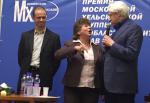


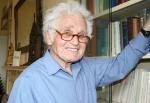





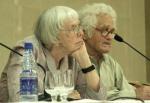
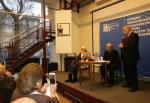
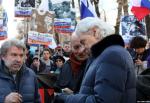
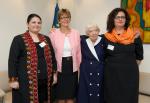


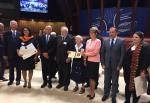





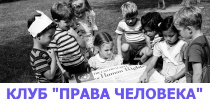









Статьи, мнения и комментарии
Леонид Никитинский
Каринна Москаленко
Лев Шлосберг
Владимир Кара-Мурза *
Мария Эйсмонт
Леонид Никитинский
Галина Арапова *
Татьяна Котляр
Илья Шаблинский
Александр Верховский
Борис Альтшулер
Мария Эйсмонт
Дмитрий Иванов
Вячеслав Бахмин
Илья Шаблинский